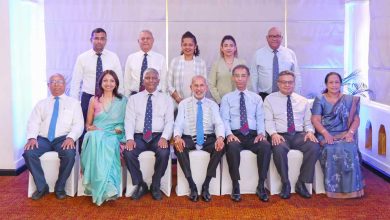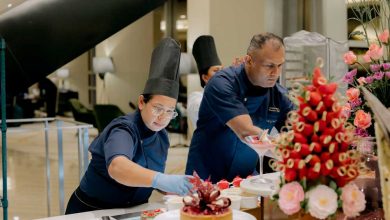FHIIT
The impotence of movement as we age

Physical health and movement are vital for all ages to boost strength, mobility and wellbeing. According to a study conducted by the Kobe University in Japan, the loss of muscle mass, as a result of reduced physical activity, has become a significant issue as individuals get older. Building up strength and agility through physical activity for older adults provides significant physical benefits, including reducing the risk of falls and maintaining walking ability, strengthening cardiovascular health and bone strength. Additionally, physical movement has proven to help improve mental health by releasing good endorphins which contribute to the easing of stress and battling depression and anxiety. These factors combined allow us to build a stronger and better version of ourselves and prove that we only get stronger with age! FHiit aims to create a community of health-conscious individuals by breaking the mould that it is too late for older adults to start exercising.
Among older adults in Sri Lanka, in 2018 over 22.6% of deaths were a result of cardiovascular diseases. Triggers of these diseases can largely be avoided through regular exercise as it promotes weight loss, and reduces blood pressure and bad cholesterol levels. Symptoms like high cholesterol issues, high blood pressure and increased weight can also be signals of diabetes within individuals. In 2019, Sri Lanka recorded 23.0% of adults who had diabetes. Physical exercise is essential for us as we age as it significantly reduces our likelihood of developing these diseases. Adding to this, the impact of movement on walking ability and bone strength is important for individuals as they age.
As we age, our muscle mass and strength deteriorate as a result of diet, activity and hormones. This furthermore promotes fatigue, fat increase and muscle denervation. With the significant muscle loss along with age, older adults who do not exercise are more susceptible to developing ‘Sarcopenia’. Sarcopenia is seen in adults older than 30 and results in the loss of 3-5% of muscle mass per decade. This causes issues for individuals’ difficulty in conducting daily activities like walking, standing and carrying. Developing conditions like this not only impacts physical movement in older adults but also mental health, cognitive awareness and happiness. The lack of energy, drive and physical activity for older adults can cause poor mental health. As we age, prioritising the need for movement is critical to promote mood regulation and happiness. Physical activity is important for the brain and body to reduce anxiety by providing an emotional balance and furthering our learning, problem-solving and thinking skills. By releasing endorphins as well as hormones like serotonin and adrenaline, working out allows us to feel happier and more positive about our wellbeing. As we develop our outlook on exercise and movement, these endorphins show us a more energised, happier outlook on life.
Bringing to light the importance of physical movement and exercise is a core principle of FHiit. Breaking the cliches that older adults can’t get active, FHiit aims to help individuals of all age groups by making exercise more fun and accessible. As head coach Yohan Rathnayake highlights, by looking at physical and personal growth, the team aims to build workouts which build up your endurance and strength. With both movement-centric (functional) and muscle-centric (weight-lifting) routines. Their movement-centric workouts are function hybrid workouts that combine a few exercise principles. By doing so, you can choose to do individual, buddy or even online training sessions.
The combination of aerobic and strength-based workouts is especially beneficial for older adults as it keeps improving their agility and mobility. Focusing on high-intensity exercise with low-intensity recovery, FHiit’s workouts are more effective in fat burning and muscle toning, while also more fun and supportive for each individual. Above all, coach Jessica Silva highlights FHiit aims to build a supportive community which empowers each other’s fitness goals.
For more information on FHiit and registration, please visit their website: https://www.fhiit.lk/. phone: +94 71 456 5762 or email: info@www.fhiit.lk.





